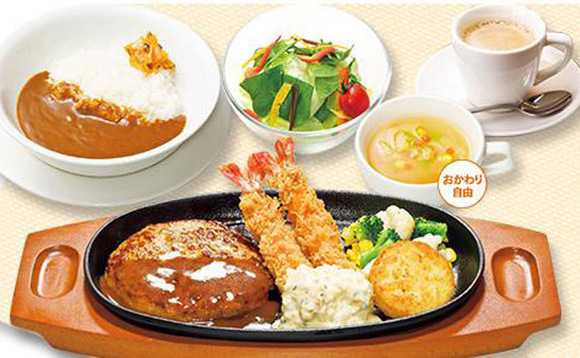
Skylark exit helps consign buyout boom to history

With Skylark sold and Yayoi likely to follow it, Japan’s megadeals of 2006-2008 are finally being dismantled and the – relatively meager – profits returned to investors
It seems faintly ludicrous that Japan's largest buyout since the global financial crisis should have been delayed by dysentery. Yet a bout of the illness in September tied to restaurants owned by the Skylark Holdings supposedly put back Bain Capital's JPY160 billion ($2.1 billion) purchase of the company from Nomura Principal Finance by a few weeks.
It was the latest in a string of setbacks. Discussions were already at a late stage in March when the earthquake and tsunami hit Japan, prompting banks to temporarily withhold financing. The sale eventually closed in October.
With MBK Partners' exit from accounting software developer Yayoi imminent, the remnants of the 2006-2008 megadeals are being dismantled as private equity firms stomach their losses and look to return capital to investors.
Following Carlyle Asia and Unison Capital's part-exit from Covalent and Advantage Partners' inglorious separation from indebted Tokyo Star Bank, both of which took place earlier this year, Arysta Life Science is the last man standing. The European PE firm bought the asset in 2008 from Olympus Capital and still holds it, although the level of leverage employed in the JPY260 billion acquisition may never be seen again in Japan.
Priciest of the priciest
But Skylark is the standout example of how far the bankers and PE firms were willing to go. In 2006, Nomura and CVC Capital Partners paid around JPY380 billion ($3.19 billion at historical rates) for stakes in Skylark of 77.76% and 20.96%, respectively, supported by JPY220 billion in loans from Mizuho. It is routinely described as the most expensive PE investment ever made in Japan.
Some industry players are puzzled by Bain's interest in the asset. Aside from the assumption and refinancing of Skylark's debts, which will add JPY100 billion to the acquisition price, the strength of the yen against the dollar doesn't help the US private equity firm. "There is a big difference in the exchange rate between 2006 and now so Skylark deal would be very expensive for Bain compared to what Nomura and CVC paid," one local LP tells AVCJ. "Bain must have good reasons for buying it."
The exchange rate is currently JPY77 to the dollar, compared to JPY116 in five years ago, which effectively adds $1.2 billion to the price. Potential mitigating factors include a clear exit plan - Bain may be able to sell off valuable assets piece-by-piece - and drastic restructuring within Skylark. It is generally acknowledged that Nomura, CVC and Skylark each had their own ideas on improving the business and this hindered progress.
Skylark operates about 3,600 stores across Japan, under brands including Jonathan, Bamiyan Chinese and Gusto. The latter is the most profitable, but it is also the brand most affected by the outbreak of dysentery. There are also more fundamental challenges such as Japan's slowing consumer economy.
Another industry participant puts a slightly more cynical twist on Bain's motivations. "Bain is in a process of fund raising so reports of a Skylark deal would make LPs feel confident that it has the ability to do big deals despite the current economic gloom in Japan," the source says.
Looking for an exit
Some of the other megadeals are far clearer cut. Advantage Partners saw Tokyo Star Bank struggle during and after the global financial crisis and the asset was handed back to Lone Star, its original owner, in June when the private equity firm failed to meet loan repayments.
Carlyle and Unison bought Covalent, then known as Toshiba Ceramics, from Toshiba Group in 2006 for JPY91 billion, backed by JPY65 billion in debt. They offloaded the silicon wafer business to Taiwan-based wafer manufacturer Sino-American Silicon Products for JPY35 billion in August, retaining the ceramics unit. According to AVCJ's sources, the relatively low price reflected the fact that Covalent's wafer business generates returns of just 0.2% and the PE owners wanted to focus on ceramics and improve the bottom line.
Most recently, South Korea's MBK has reportedly advanced Advantage Capital, Bain and Olympus to the second round of bidding for Yayoi. Final bids are expected in November, with a mooted selling price of more than $650 million.
MBK purchased the asset for JPY71 billion from Japanese media conglomerate Livedoor in 2007. The previous owners, Advantage Partners and Marubeni Corporation, sold out to Livedoor four years earlier. Yayoi is known as a reliable profit earner. Exchange rates could again prove crucial in determining the size of the gains.
"Advantage Partners made remarkable returns from Yayoi's exit and now MBK is trying to do the same," according to an industry source familiar with the situation. "It paid a lot for the company in 2006 but the strong yen could mean healthy returns due to currency appreciation."
Latest News
Asian GPs slow implementation of ESG policies - survey
Asia-based private equity firms are assigning more dedicated resources to environment, social, and governance (ESG) programmes, but policy changes have slowed in the past 12 months, in part due to concerns raised internally and by LPs, according to a...
Singapore fintech start-up LXA gets $10m seed round
New Enterprise Associates (NEA) has led a USD 10m seed round for Singapore’s LXA, a financial technology start-up launched by a former Asia senior executive at The Blackstone Group.
India's InCred announces $60m round, claims unicorn status
Indian non-bank lender InCred Financial Services said it has received INR 5bn (USD 60m) at a valuation of at least USD 1bn from unnamed investors including “a global private equity fund.”
Insight leads $50m round for Australia's Roller
Insight Partners has led a USD 50m round for Australia’s Roller, a venue management software provider specializing in family fun parks.








